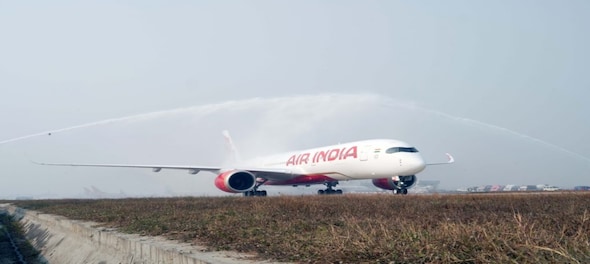
It was a partial victory for several pilots working across Indian airlines on January 8, 2024, when the Director General of Civil Aviation (DGCA) revised the flight duty, rest and fatigue management rules and gave airlines five months to implement the rules.
However, nearly three months after that decision, the aviation regulator seems to have taken a surprising U-turn by indefinitely deferring the implementation of the new rules.
"All operators engaged in scheduled air transport operations may continue to operate in compliance with CAR Section 7 Series J Part III Issue III dated 24th April 2019 till approval of their respective scheme in compliance with this CAR," as per DGCA's Civil Aviation Requirement (CAR) that was revised on March 26.
This means airlines will stick to the earlier duty and rest timings, which pilots felt were not adequate and left them in a state of fatigue.
The latest decision comes less than two weeks after the DGCA told airlines that the deadline for implementing the revised norms would not be deferred.
The Federation of Indian Airlines (FIA), including Air India, SpiceJet and IndiGo, had written to the regulator twice on February 22 and March 6, requesting more time for implementation of the revised rest and fatigue management norms. Airlines argued that the revised norms will hit their operations and require them to cut flights and hire more pilots.
But the DGCA had dismissed their appeal and asked them to comply with the new rules by June 1.
In a letter to FIA on March 14, the regulator had said "the unfortunate instances of pilot deaths in the recent past, ostensibly due to punishing roster schedules and
The indefinite deferral contrasts with Civil Aviation Minister Jyotiraditya Scindia's post on X on January 8.
"After in-depth analysis of pilot rosters, fatigue-related reports, and direct feedback from pilots, we have introduced revised “FDTL Regulations” that include increased rest periods, redefining night duty, and regular fatigue reports to be shared by airlines," Scindia said in his post on X.
The amended norms mandated increased weekly rest periods to 48 hours from 36 hours earlier for the flight crew to ensure "sufficient time for recovery” from cumulative fatigue.
Further, night hours for pilots covered the period from 12 am to 6 am versus the existing period of 12 am to 5 am.
"The enhancement of one hour during the early morning will ensure adequate rest and also align the night duty period, which encompasses Window of Circadian Low (WOCL) from 0200-0600 hours," the DGCA said in its January 8 statement.
The number of landings had been limited to two as against the maximum permissible six under the previous regulations during night operations, thus enhancing flight safety, the statement said.
According to the revised norms, all airlines would have had to compulsorily submit quarterly fatigue reports, which "should follow a non-punitive and confidentiality policy".
CNBC-TV18 is awaiting airlines' responses to the deferral. An Air India spokesperson declined to comment.
The deferral is a setback for pilots who demanded more rest between flights to avoid fatigue and other health issues.
Check out our in-depth Market Coverage, Business News & get real-time Stock Market Updates on CNBC-TV18. Also, Watch our channels CNBC-TV18, CNBC Awaaz and CNBC Bajar Live on-the-go!


Lok Sabha polls: Voter turnout in Rajasthan over 62%, down by 4% since 2019
Apr 28, 2024 8:49 AM
BJP replaces Poonam Mahajan with lawyer Ujjwal Nikam for Mumbai North Central Lok Sabha seat
Apr 27, 2024 7:53 PM

